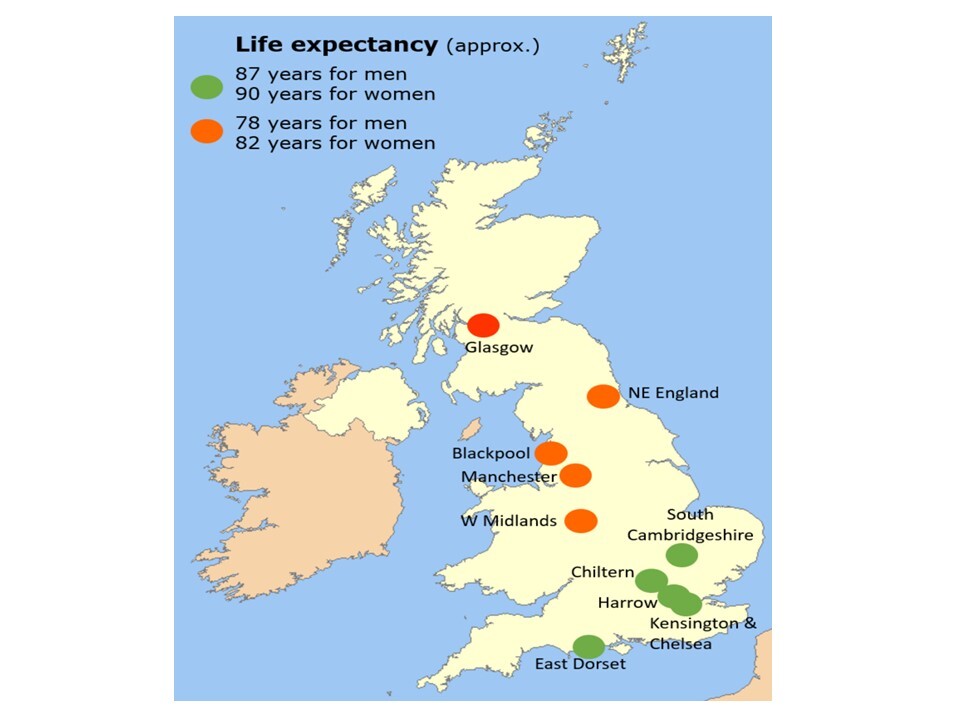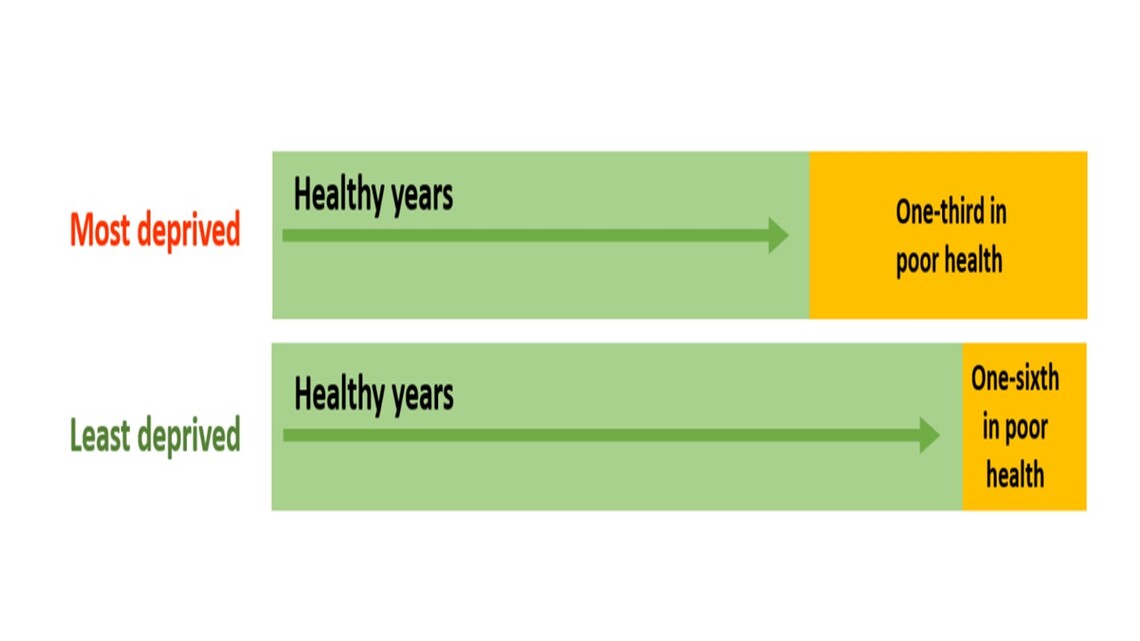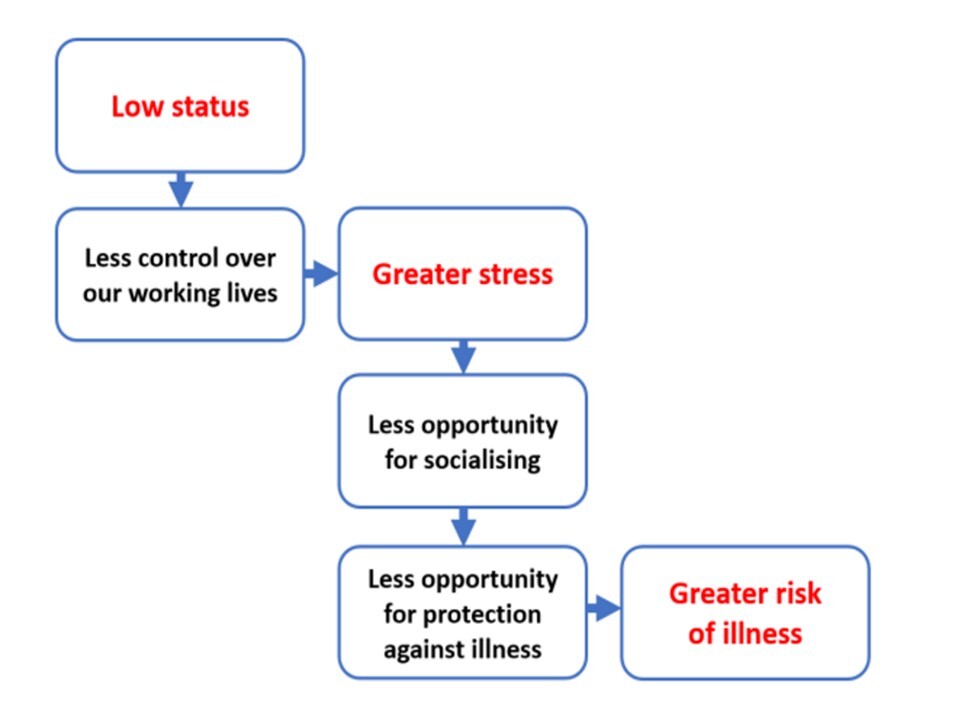Does your postcode really indicate how long you might live? Do we need to move home to live longer? Can we stay where we live now and find ways to improve our longevity?
- Where do people live longest in the UK?
- Where in the UK is life expectancy shortest?
- The impact of Covid-19
- Why are there such differences in life expectancy?
- Should we all move to the south of England?
- What can we do wherever we live?
- Conclusions
Where do people live longest in the UK?
People usually live longer in more affluent areas. That’s the bottom line from statistics published annually by the UK’s Office for National Statistics (ONS).
- We can look at the longevity of men or women, or we can look at statistics of life expectancy at birth, or from the age of 65, but whichever way we choose to look at the issue of longevity, the verdict is pretty much the same: people usually live longer in more affluent areas.
- East Dorset (home to Sandbanks, the millionaire’s peninsula), and other affluent areas, including Chiltern in Buckinghamshire, South Cambridgeshire, Harrow (north-west London) and Kensington and Chelsea (west London) usually feature in the top ten places in the UK for longevity, whatever the measure.
- In each of these examples, average life expectancy is at least 87 for men and 90 for women.
Where in the UK is life expectancy shortest?
The reverse also applies: people living in less affluent areas have a lower life expectancy. Whatever measure we choose, parts of Scotland have the lowest life expectancy, alongside Manchester and Blackpool in north west England, the north east of England and the West Midlands.
In 2017 to 2019, the gap in life expectancy between the most deprived and least deprived areas of England was 9.4 years for males and 7.6 years for females. In both cases the gap had increased slightly compared with just a few years earlier.
- Studies into the health of Glasgow’s population show greater deprivation than in any other city in Scotland. This high level of deprivation has resulted in Glasgow’s particularly low average life expectancy of just 73.3 years for men and 78.7 for women.
- If we consider life expectancy of a healthy life (the number of years people live in good health), then the contrast is even greater. People in the most deprived areas spend 19 more years in poor health (up to one-third of their lives), compared with those who live in the least deprived areas (one-sixth of their lives in poor health).
The impact of Covid-19
Covid-19 has magnified the differences between the most deprived and the more affluent areas. For example, in England in February 2021, deaths due to the pandemic were 585 per 100,000 people in the most deprived areas, compared with 282 deaths per 100,000 people in the least deprived areas. That means that the death rate was twice as high in the most deprived areas compared with the least deprived.
Why are there such differences in life expectancy?
Here are some of the answers that have been suggested:
Financial differences
If you’re well off financially, you can afford to buy things that might keep you healthy, from fresh fruit and vegetables to gym membership. If you have a lower income, however, you are less likely to choose to spend on options such as these.
|
One in five people in the UK is in poverty, without the resources to meet their minimum needs. The Health Foundation (2018) |
Life choices and health
People in deprived areas seem more likely to smoke, abuse alcohol and become obese – all health risks. For example, in 2016, people living in the most deprived areas of England were more than four times more likely to smoke than those living in the least deprived areas.
Stress and mental health issues
Smoking, alcohol and eating too much all cost money, so why do people in deprived areas sometimes spend so much on things that are bad for them? Some studies suggest they are possibly more stressed due to their situation and see smoking, alcohol and comfort eating as ways of managing that stress.
This appears to be supported by the 2014 Health Survey of England, the most recent UK Health Survey to include questions about mental health medication. This survey found that ‘17% of the poorest women took antidepressants compared with 7% of the richest’.
Social inequality
This links with the observation that social inequality can cause ill health. Professor Sir Michael Marmot’s extensive research for his book Status Syndrome (Bloomsbury Publishing, 2004) concluded that lower status and less control over our working lives increases stress, offers fewer opportunities for social participation and therefore increases the risk of serious illnesses such as cardiovascular disease.
Occupation
Social inequality in turn correlates with how long people tend to live, depending on their occupation. For example, teachers and nurses tend to live longer than plumbers, even though some plumbers may earn more, suggesting that social status affects how long we live.
Since the 1950s, thedecline of heavy industry in the north of England, Scotland, Wales and Northern Ireland has resulted in a major loss of employment in these areas. For instance, the north east of England has an unemployment rate twice that of the south east of England. This is likely to cause loss of both status and income and to exacerbate stress.
There could also be reverse causation. If someone is ill, they are less likely to be able to work and therefore less likely to be well-off.
Climate
Could climate also make a difference to our life expectancy? The south of England gets more sunshine than the north, including Scotland. Dorset, in particular, has a unique microclimate and is one of the sunniest places in the UK. Sunshine is the main natural source of Vitamin D and is important because Vitamin D deficiency has been associated with a range of illnesses – although it isn’t yet clear whether Vitamin D deficiency is actually causing the illnesses.
Should we all move to the south of England?
This isn’t a realistic option, even if we all wanted to. It may not be a wise move either. Moving somewhere where you don’t know anyone can be lonely and isolating, which may negatively affect mental health. Studies have shown that loneliness and social isolation increase the risk of mortality in both men and women, even after underlying health problems are taken into account.Some researchers suggest that the effect of moving to another area can be as damaging for a person’s health as smoking or obesity.
|
Living in an affluent area doesn’t guarantee a longer life. It just increases the chances that you’ll be following a healthier lifestyle. |
What can we do, wherever we live?
Fortunately, there is a range of things we can do to increase our chances of living longer in good health, whatever our postcode. For example:
- Don’t smoke, don’t binge drink, eat a healthy diet and take regular exercise. Following these lifestyle choices could add ten years to your life.
- Take advantage of any educational opportunities available in your adult life, even if you didn’t do well at school. This seems to have health benefits.
- Maintain and develop strong social networks, with family or friends. Some studies suggest this has a protective effect on health.
- Volunteering – some studies suggest that doing voluntary work can help maintain health and improve life expectancy. There are likely to be opportunities to volunteer wherever you live.
Conclusions
Where we live seems to influence how long we might live. How affluent or deprived the area seems to be particularly important. However, wherever we live, there are five actions we can choose to take to improve our chances of living a longer and healthier life:
- Don’t smoke, binge drink or overeat.
- Exercise regularly.
- Take advantage of educational opportunities throughout life.
- Volunteer.
- Maintain and build strong social networks.
Reviewed and updated April 2021. Next review date, March 2025.
__________________________
Other relevant articles on the Age Watch website:
- Living longer: Adding years to your life, and life to years
- Living longer: How can we stay healthy longer?
- Living longer: Is status a key to longevity?
- Living longer: Centenarians
- Living longer: Look after your body
- Fitness: Exercise and live longer
- Mind: Stress
- Mind: Work and health
- Health Campaign: Healthy and wealthy



